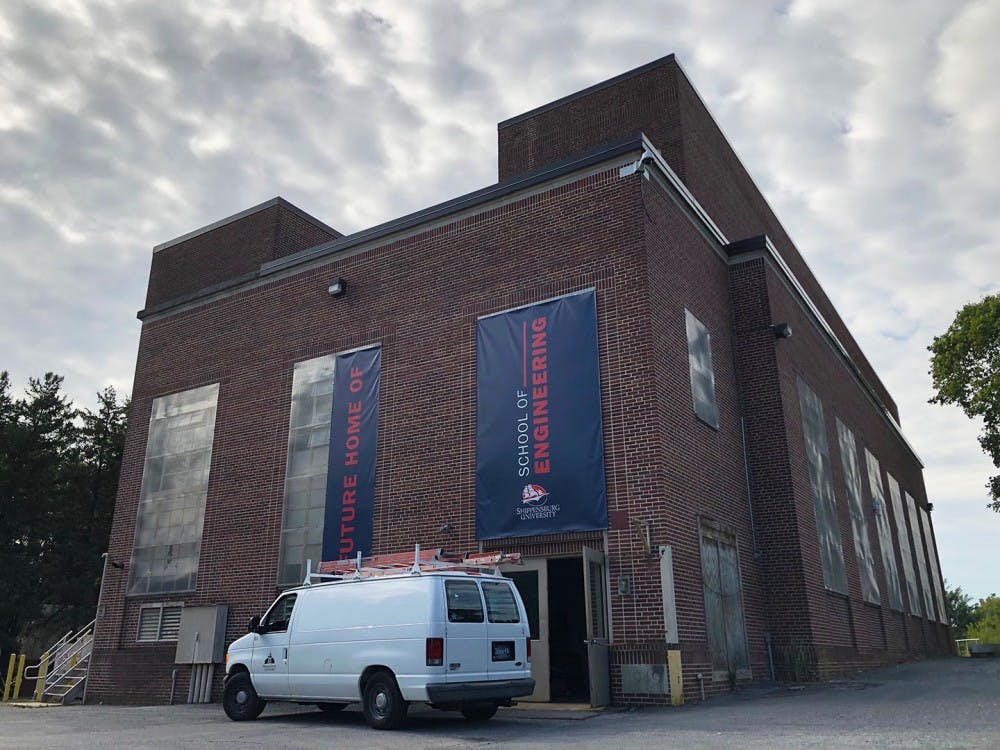On Dec. 5, 2022, the official Instagram account of Shippensburg University shared a photo featuring two male-presenting students in the newly named Milton and Doreen Morgan Engineering School with the caption “This is what an #engineer looks like.” The caption was then changed roughly 22 hours later to say, “Hands-on learning at the Milton and Doreen Engineering Lab!” with no comment or apology publicly made.
For a university that, according to its own website, “celebrates diversity” to make such a claim about engineers is insensitive and discrediting to the students at Shippensburg who do not fall into the stereotype perpetuated at the beginning of fall finals’ week by Shippensburg University’s Instagram account. This brings forth the societal notion that engineering is unfriendly to women and other non-male identifying individuals.
Harvard Business Review states that engineering is the most male-dominated field in all of STEM, and it may be the most male-dominated profession in the United
States. Engineering and STEM in general are unwelcoming to female students. Female students experience higher bias, unequal access to resources and mentoring and harassment and assault, all barriers to one becoming and staying a woman in engineering. The story is similar at Shippensburg University.
Lilly Merrell, a sophomore mechanical engineering major, recounted her experience so far at SU. While she very much enjoys mechanical engineering, she finds it very difficult to fit in and make friends, since the majority of her classes are male-dominated.
“I’ve had professors make sexist jokes in class and had to sit quietly and say nothing as my male peers laughed,” Merrell said. Another time, her professor joked about his wife and about how men and women will never understand each other or be able to work together. In a different instance, a professor described the ideal engineer, consistently using he/him pronouns to describe this paragon.
“These situations made me feel powerless and as if I were nothing but a joke to my peers,” Merrell said.
To be clear, I am far from being a female
engineering student here at Shippensburg; in about a year and a half I will be graduating from Shippensburg University with a bachelor’s degree in communication, journalism and media and sociology with a minor in women’s and gender studies. I am about as liberal arts as they get. However, it is through what I have learned in my classes at SU that I am willing and able to amplify the voices and experiences of injustice for women and others in the engineering school at Shippensburg University.
When Merrell saw the post on Shippensburg University’s Instagram detailing what an engineer looks like, she said it was very disheartening. “I was very disappointed that Shippensburg would be so careless as to post that caption without a second thought as to how unrepresented non-masculine presenting people in engineering would feel.”
One of the first things students in the communication department learn is to think of one’s audience. As an institution of higher education that prides itself on its dedication to diversity and inclusion, Shippensburg University must present itself with this value in mind, especially on social media where
posts can be seen instantly by people. The official Instagram account of SU has more than 10,000 followers, many of these being alumni, students and prospective students. What is posted on this account vastly reflects Shippensburg University’s values. Simply changing the caption and hiding under the pretense of false diversity and inclusion does not help SU’s students but rather harms them.
Merrell suggested some changes she would like to see in the engineering department at Shippensburg University including discrimination training for professors and a support system for women and other non- men in STEM at the university. “It’s hard enough to gain respect from my male peers as it is, so it would be very helpful if my professors did not encourage discrimination in the classroom.”
I would also urge Shippensburg University to be more cognizant of what they share on social media and how they promote their values. If an offensive post is made, such as the one focused on in this article, an apology should be made. Simply changing the caption is like putting a bandage on the situation. People notice. I notice.


The Slate welcomes thoughtful discussion on all of our stories, but please keep comments civil and on-topic. Read our full guidelines here.